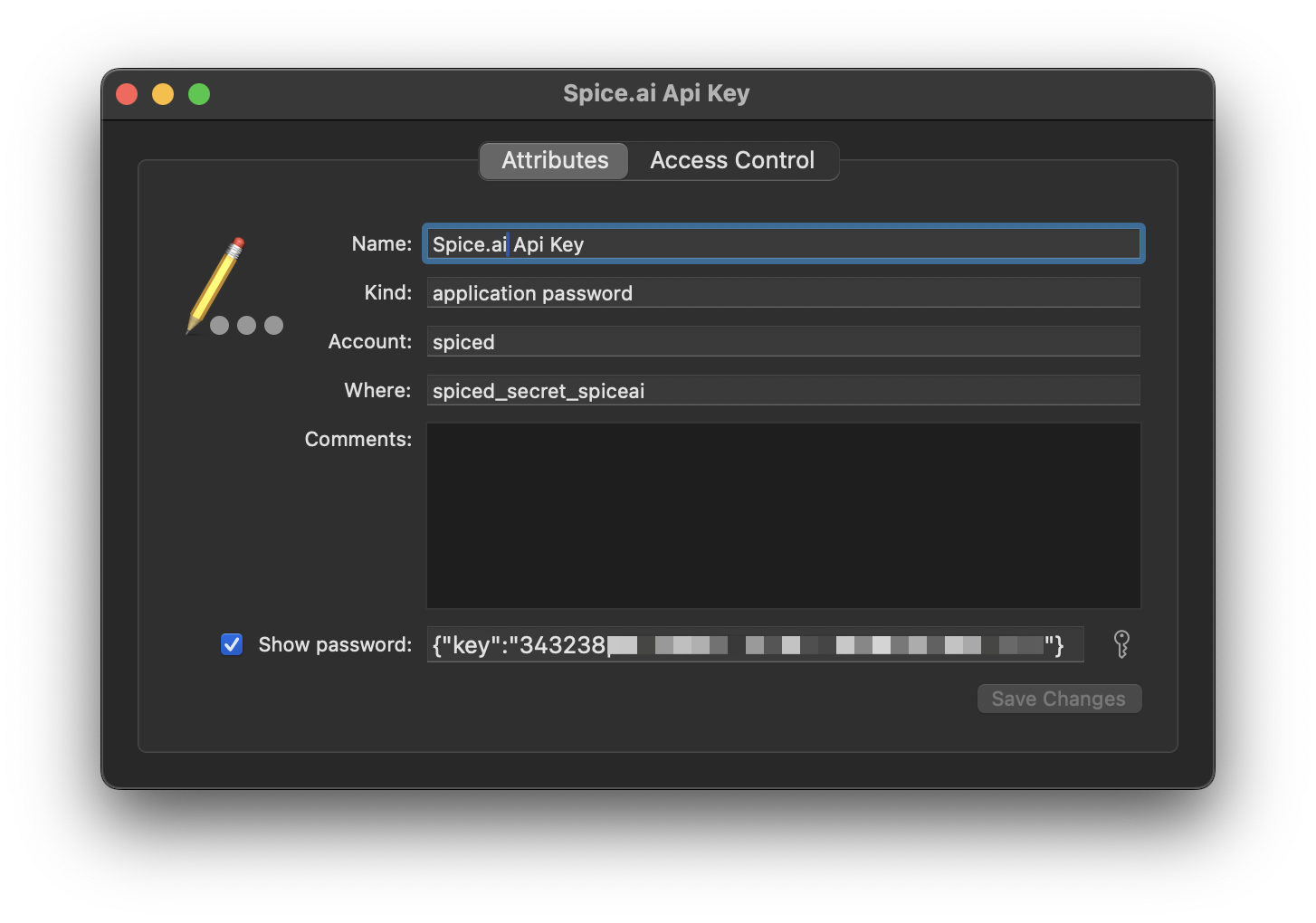Secrets
Secret
A Secret is an object used to store sensitive data, like a passwords, a tokens, or keys.
Secret Stores
The secret store is a location where the secret objects are stored.
Spice.ai supports four types of secret stores: file, env, kubernetes and keyring. The type of secret store is specified in the store field of the secrets section in the Spicepod manifest.
File Secret Store
Default secret store uses a file located at ~/.spice/auth.
The Spice.ai CLI offers the spice login command to streamline credential storage. When logging into Spice.ai, it automatically saves credentials in the secret store file under spiceai secret.
Environment Secret Store
The env store type allows Spice.ai to read secrets from environment variables. The environment variables should be formatted like SPICE_SECRET_<secret-name>_<secret-value-key>.
All variables with the same prefix SPICE_SECRET_<secret-name> are combined into a single secret. This allows you to group related secret values under a single secret name.
Example
secrets:
store: env
Setting spiceai secret with spice.ai API key in key secret value:
SPICE_SECRET_SPICEAI_KEY="343533|**************" \
spice run
Kubernetes Secret Store
The kubernetes store type allows Spice.ai to read Kubernetes secrets.
secrets:
store: kubernetes
Note: This method requires the Kubernetes service account, which is running the Spice.ai pod, to have extended roles for secrets API access. Make sure to configure this service account with the necessary permissions to read secrets from the Kubernetes API.
Example of Kubernetes role configuration for a custom service account:
kind: Role
apiVersion: rbac.authorization.k8s.io/v1
metadata:
name: spiced-account-role
rules:
- apiGroups: [""]
resources: ["secrets"]
verbs: ["get"]
Keyring Secret Store
The keyring store allows Spice.ai to access secrets from the secure store of the host operating system:
- On Linux, it uses the secret-service and kernel keyutils.
- On macOS, it uses the keychain.
- On Windows, it uses the credential manager.
The keyring store will read entries name to be formatted as spice_secret_<secret-name>, and entry account or user should be set to spiced.
Note: secret values required to be stored as JSON strings for compatibility with Spice.ai secret objects, as the keyring store supports only string values.
Example
For setting spiceai api key secret using macOS keychain, create new keychain entry, with following JSON string value
"{ key: "<your spice.ai app api key>" }"

Then set store field of the secrets section in the Spicepod manifest:
secrets:
store: keyring